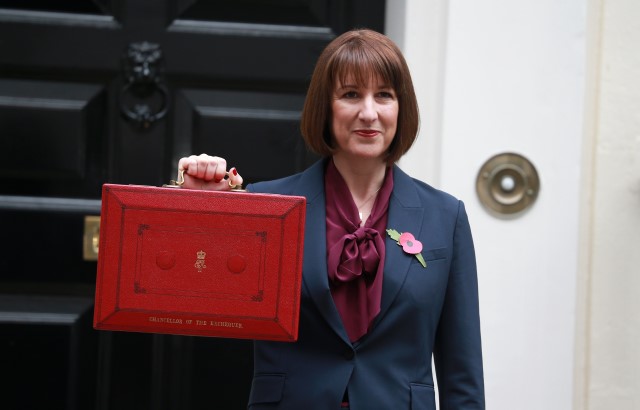

Labour’s first Budget since taking office in July focused on their ambition to restore economic stability and increase growth. We were pleased to see Chancellor Rachel Reeves MP commit to measures that could help to prevent cardiovascular disease, reduce record NHS waiting lists, and boost research.

Preventing heart disease
The Budget promised an uplift to the Soft Drinks Industry Levy in line with inflation – the first time this has happened since its introduction six years ago.
Welcoming the announcement, John Maingay, our director of policy and influencing, said: “Increasing the levy is a sensible and obvious step to help incentivise soft drink manufacturers to further reduce the amount of harmful sugar in their products.
“The Government should now build on the success of this policy by extending a similar levy to foods containing too much salt and sugar. This will help to address stubbornly high rates of obesity, overweight, and cardiovascular disease across the UK.”
Other measures announced included increased taxes on tobacco, and a new tax on vaping liquid from October 2026. We welcome the measures introduced, which are in line with the aims of the new Tobacco and Vapes Bill.
Treatment and care
The Budget promised an additional £22.6 billion of day-to-day funding for NHS England over the next two years. This will support the NHS in England to deliver additional elective appointments and make progress towards reducing waiting lists.
There will also be a boost to capital investment in public services in 2025-26, including investment in new surgical hubs and scanners to deliver additional procedures and diagnostic tests.
On the additional funding, Dr Sonya Babu-Narayan, our associate medical director, said: “This announcement is a welcome first step that could help to tackle ever-growing and record-breaking cardiac waiting lists. We know that demand for cardiology tests and treatment currently outstrips supply, so delivering tens of thousands more appointments each year will be critical to ensure that heart patients are seen within the 18-week referral to treatment target.
“However, ensuring there is sufficient cardiovascular workforce capacity and skills to deliver on increased activity will be critical to successfully bringing down time-critical and life-threatening waits.”
Research
Ahead of the Budget, we were among the organisations that wrote to the Chancellor to express concerns around a real-terms cut in R&D funding. These concerns don’t appear to have been realised with the Chancellor committing to protect R&D funding, announcing £20.4 billion investment in R&D in 2025-26 (up from £20 billion this year).
Responding to the announcement, Professor Bryan Williams, our chief scientific and medical officer, said: “It is positive that the Chancellor has promised to protect research & development funding. Today’s Budget recognised the value of R&D to the UK economy and the crucial role it will play in helping it to achieve Government’s growth ambitions.
“However, without a true uplift to R&D funding, future breakthroughs are at risk. Cardiovascular disease research is already funded far below its impact on individuals and society. We will be seeking clarity on what today’s statement means for cardiovascular disease research and the UK’s science landscape.”
What next?
The UK is in the grip of a heart care crisis. We will continue to call for a Heart Disease Action Plan to better prevent heart disease, make sure heart patients get the right care at the right time, and supercharge cardiovascular research.


